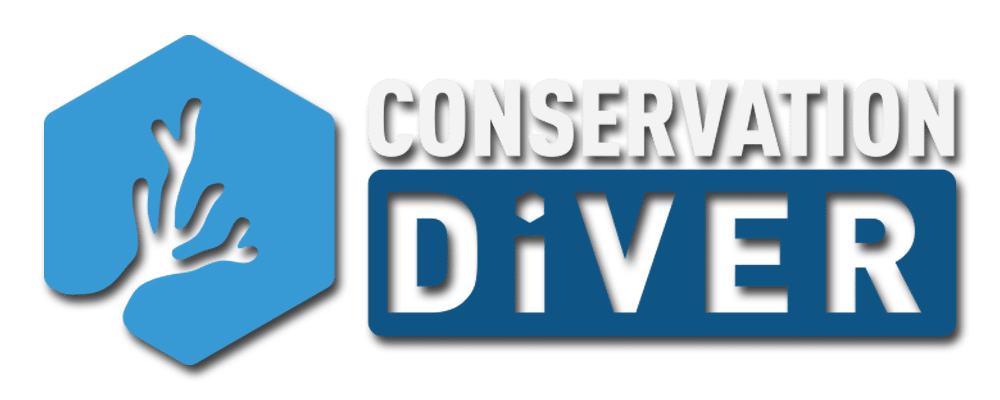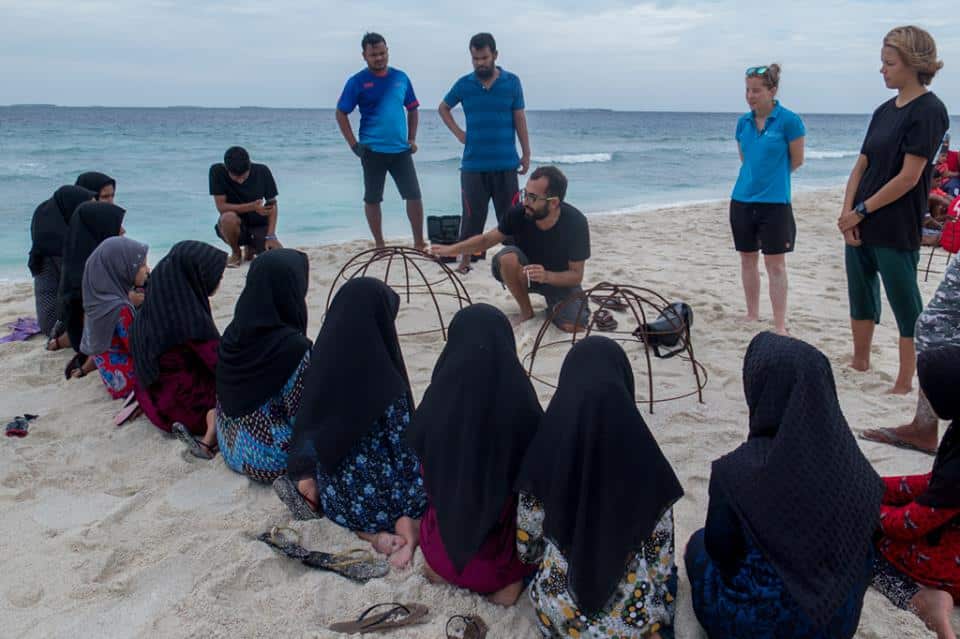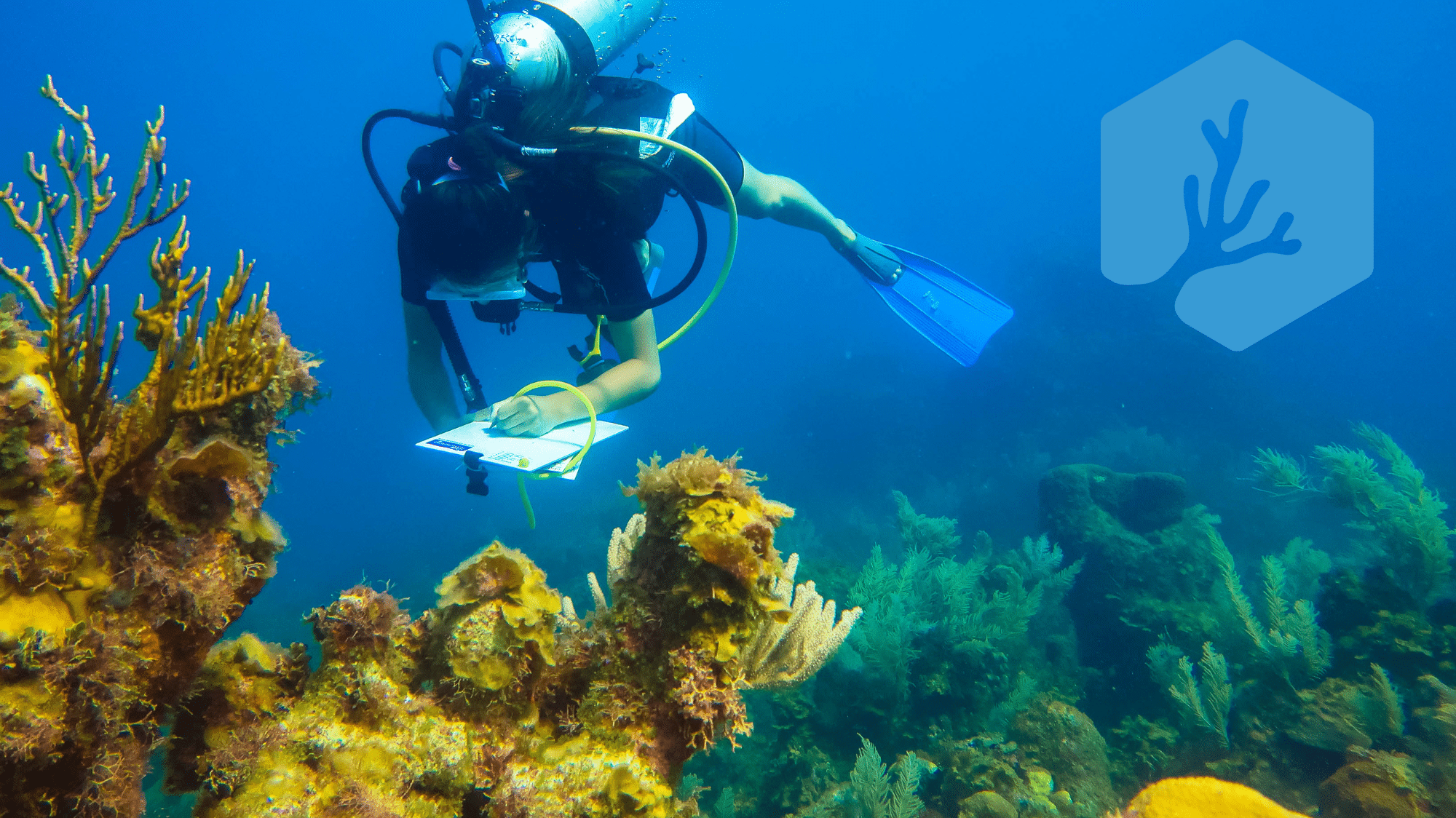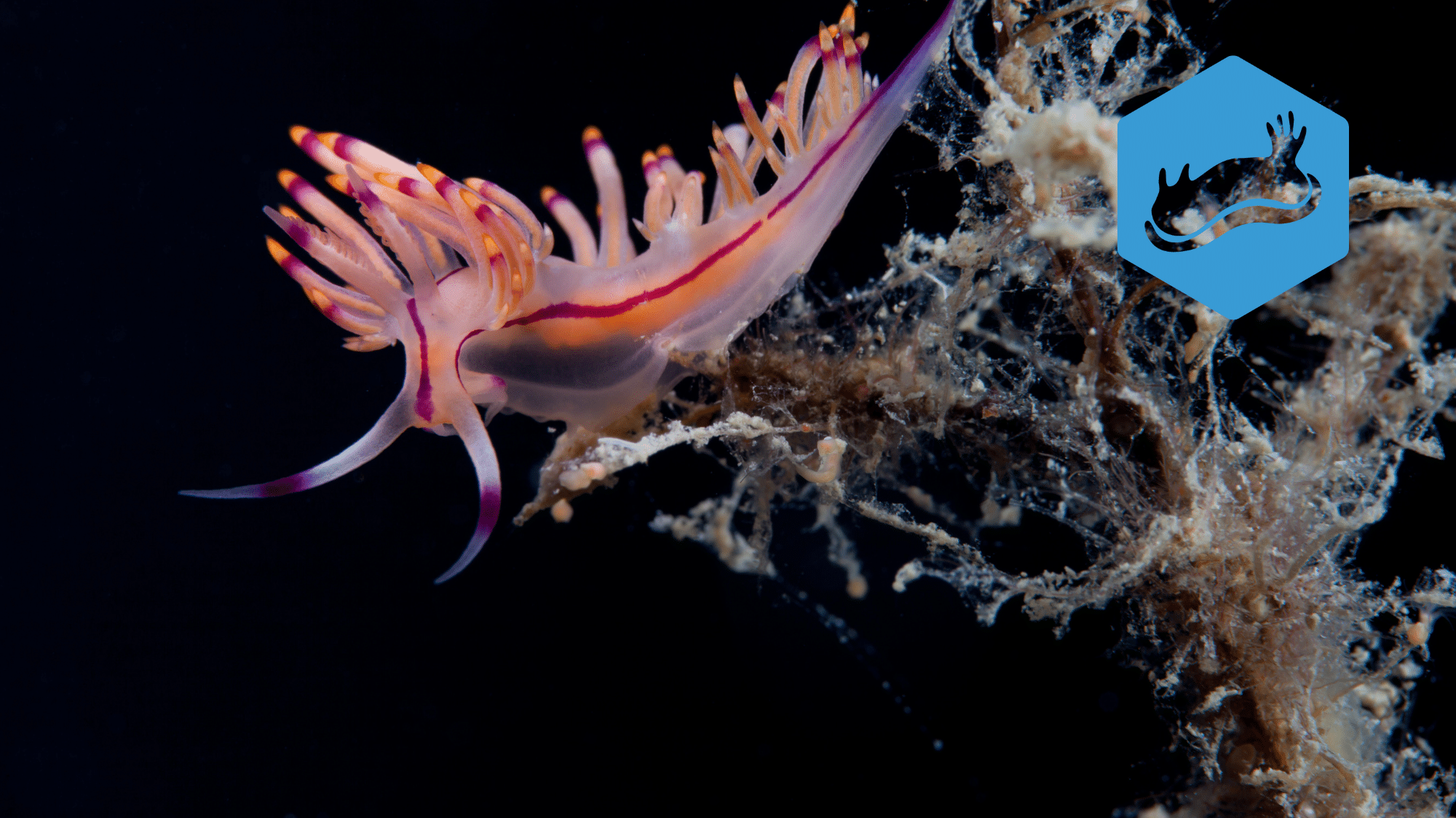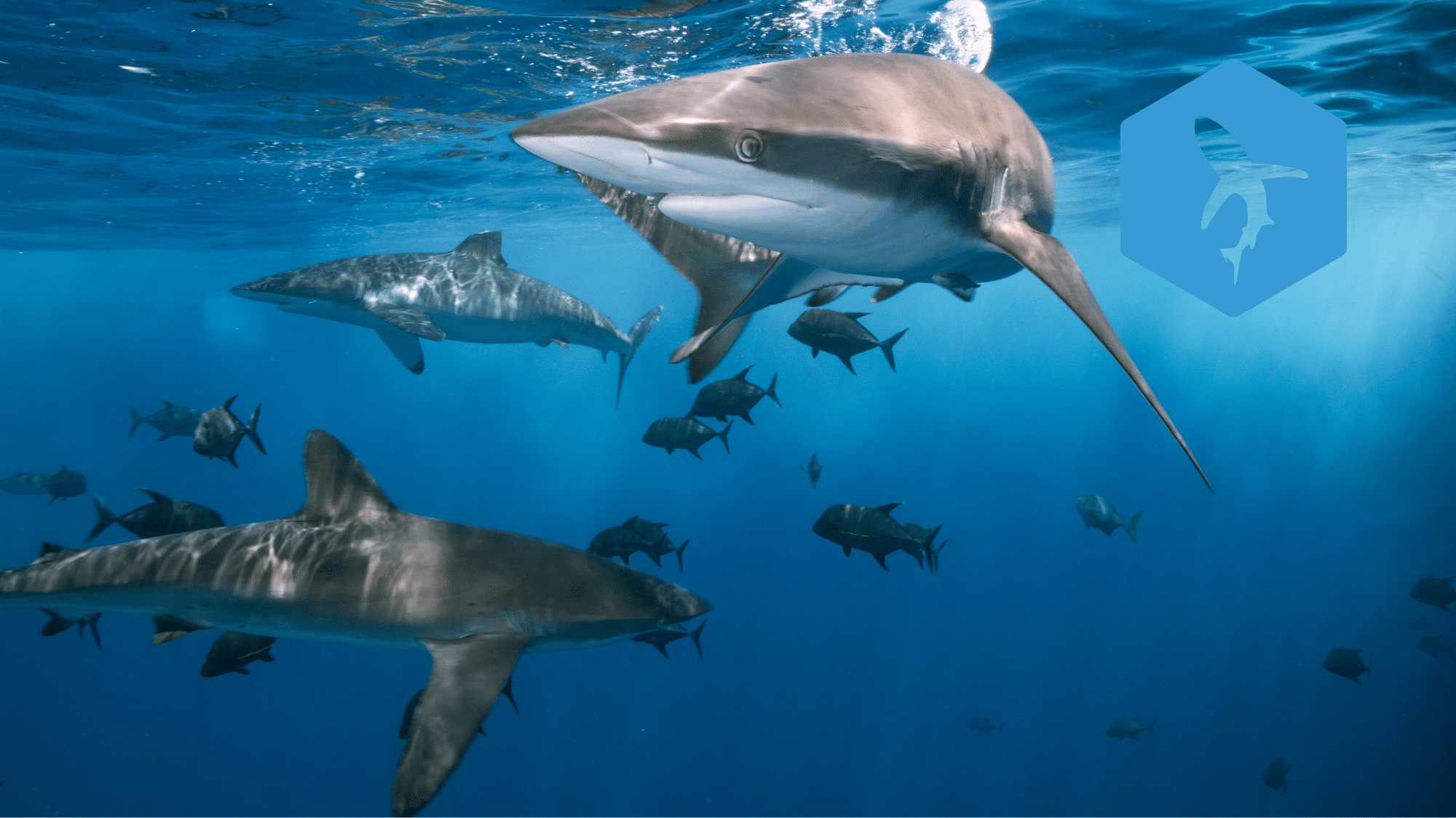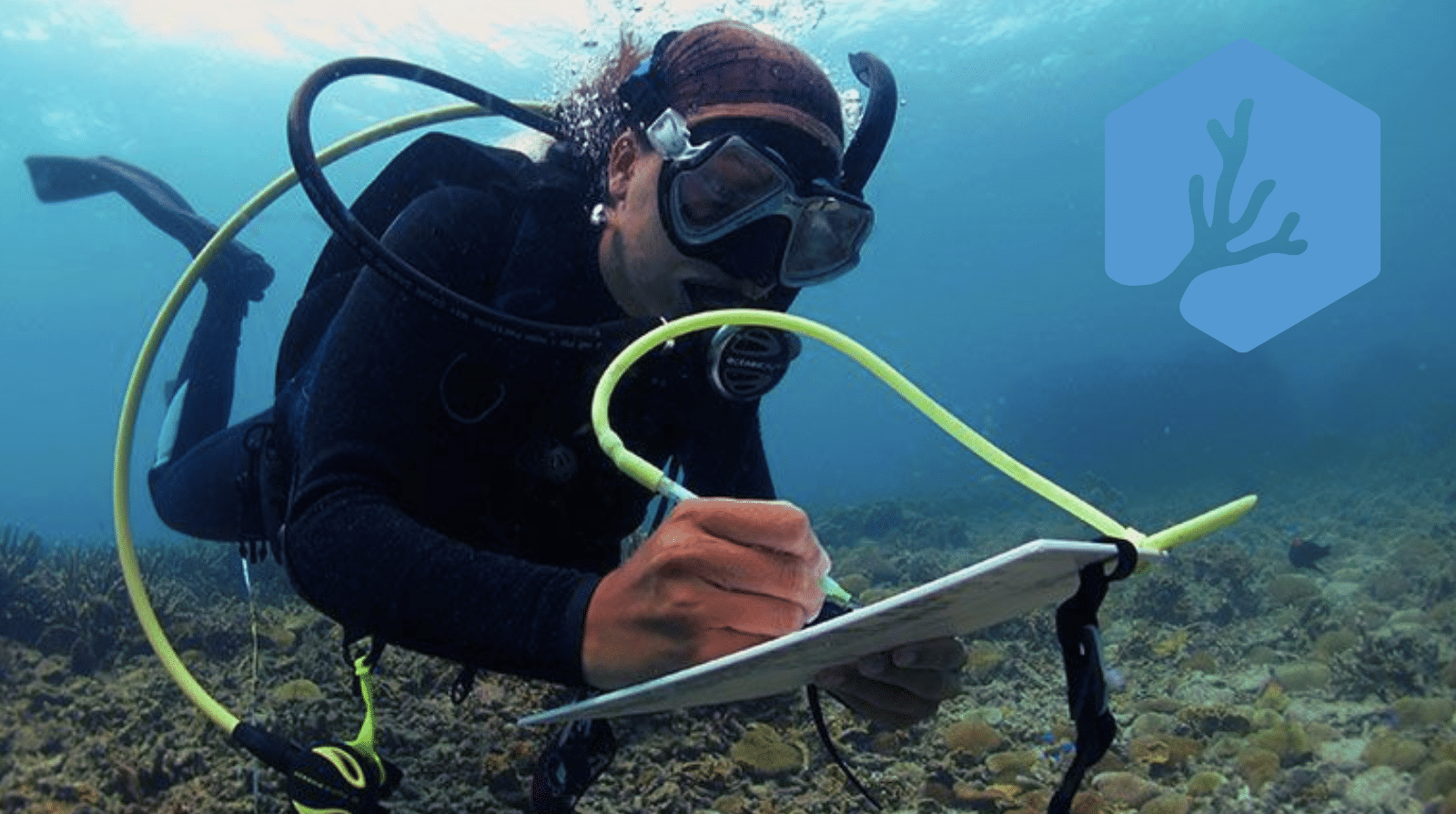Working with Island Livelihoods Institute and Corals Blue in the Maldives, May 2016
In May of 2016, Conservation Diver Trainers Pau Urgell and Kait Harris were invited by the Island Livelihood Institute to come and help with marine conservation projects and education in the Maldives. The team spent several weeks in the Maldives sharing their knowledge of coral reef ecology and coral restoration. The project could not have happened at a more salient time, as coral reef bleaching was very severe during the period.
The first stop for the team was the island of Fainu. Here the team was involved in training local islanders, children, in the techniques of coral reef education and action of Conservation Diver, and also strengthening ties with a local conservation group, Corals Blue. They spent some time teaching children of grades 8-10 about the reefs, and detailing some of the local and global threats facing the reefs the islanders depend upon. The following day they put theory into practice by taking the students on a beach clean-up, and having a competition to see who could collect the most rubbish. In all, over 70 bags of plastic bottles, rope, wrappers and Styrofoam were collected over the space of an hour. After the clean-up, the students learnt a little bit about the Coral Blue gardening project, and why it is so important as a restoration method. For demonstration purposes, they practiced the proper attachment technique using dead coral fragments found on the beach and attaching them to the domes.
Marine Ecology & Monitoring
Marine Ecology & Monitoring
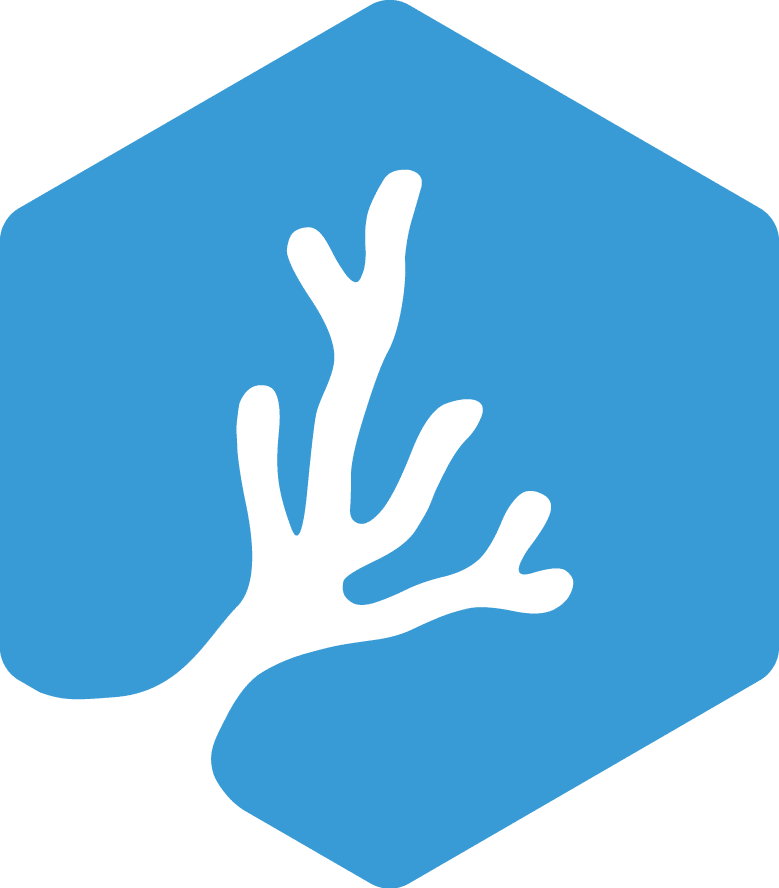
The Marine Ecology & Monitoring Course is a partial fulfilment of the full Ecological Monitoring Program (EMP), for students who do not have time to complete all 5 lectures and 4 dives of the EMP. It is designed to give students an introduction to marine ecology and how to view the reef scientifically by assessing key biotic and abiotic components on the marine environment. The course teaches students how to use real world scientific sampling and survey techniques and certifies them to conduct their own surveys and report data back to the online database. Students receiving this certification are welcome to return at a later date and complete the full EMP course.



Prerequisites
- Be 12 years of age or older
- Be certified as an Advanced diver under a leading diving organization (PADI, SSI, RAID, etc) or an Open Water diver who has satisfactorily completed a buoyancy appraisal with a professional diver
- Demonstrate proper diving ability at an advanced Level and be proficient in buoyancy and self-awareness
Standards
- Understand more about marine ecology and threats to coastal ecosystems.
- Understand various survey techniques used by reef and marine resources managers to monitor coastal ecosystems
- Learn the techniques and diagnostic features for identifying marine invertebrates along a permanent transect line
- Or the techniques and diagnostic features for identifying fishes and other vertebrates along a permanent transect line or
- Or how to assess substrate types and composition and, in locations where it applicable hard coral coverage/growth forms, using the point-intercept technique
Requirements
- Attend the Intro to Marine Ecology Lecture, plus at least one other survey lecture (Marine Invertebrates, Fish, or Substrate)
- Perform at least one of the three EMP surveys (marine invertebrates, fish, or substrate)
Expected course time: minimum 4 hours, minimum of 1 dive.
Certification Card
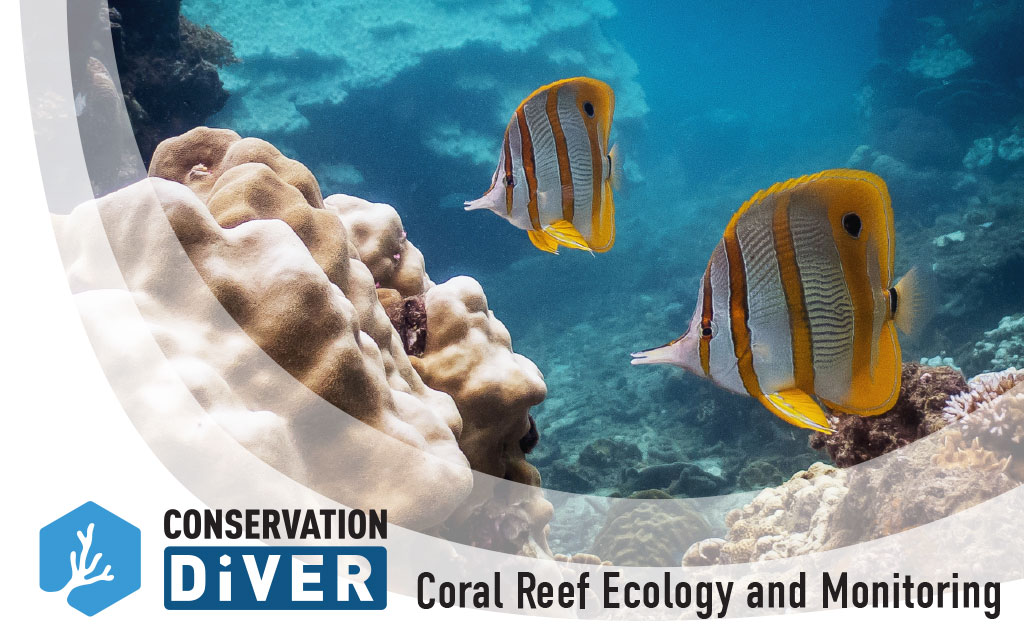
Training Centers
- Hawai'i - Ocean Alliance Project
- Madagascar - MRCI
- Mallorca - Albatros Diving
- Indonesia - Bali Conservation Diving
- Indonesia - Blue Marlin Conservation
- Indonesia - Gili Eco Trust
- Indonesia - Gili Shark Conservation
- Thailand - ATMEC
- Thailand - Black Turtle Conservation
- Thailand - NHRCP
- Thailand - The Adventure Club
Nudibranch & Sea Slug Ecology
Nudibranch & Sea Slug Ecology
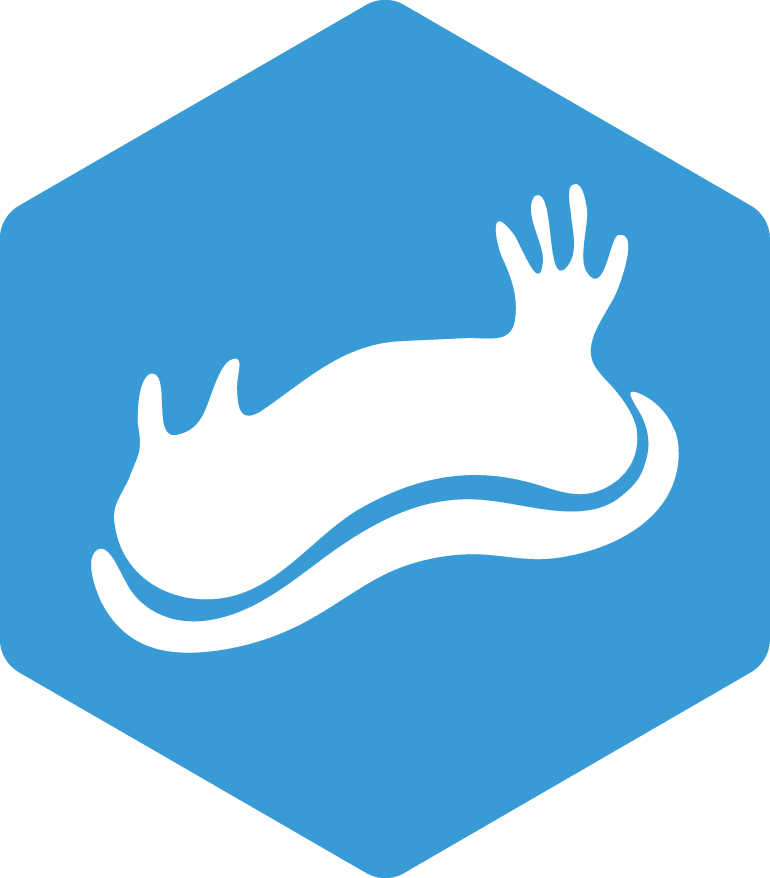
Nudibranchs, and other sea slugs, are a diverse and fascinating group of marine gastropods that have developed very colorful and ornate forms. Apart from being a favorite sighting by divers and photographers, their biodiversity is an indicator of total reef diversity, and also can be used when assessing changes in the physical or biological composition of marine areas in the face of disturbances. In our course you will learn about the ecology and taxonomy of sea slugs, and about how to conduct scientific surveys to monitor their abundance and diversity.
Prerequisites
- Be 12 years of age or older
- Be certified as an Advanced diver under a leading diving organization (PADI, SSI, RAID, etc) or an Open Water diver who has satisfactorily completed a buoyancy appraisal with a professional diver
- Demonstrate proper diving ability at an advanced level and be proficient in buoyancy and self-awareness
Standards
- Be able to differentiate between different families of sea slugs using anatomical features
- Learn various survey methods (endo-benthic, quadrat sampling, roving diver) used to survey for marine invertebrates in the muck.
- Be familiar with the hierarchical structure of taxonomy (phyla to species).
- Learn about the differences between morphological and molecular identification for marine invertebrates.
- Understand the ecological and economic role of sea slugs globally
Requirements
- Attend the nudibranch and sea slug lecture
- Complete the Sea Slug Quiz with a passing grade of at least 80%
- Attend at least 1 briefing involving procedures for diving in soft-sediment habitats (aka. muck habitat)
- Conduct at least 1 survey to observe and record sea slugs
- Complete identification of 2 different species (underwater or using photos) using online and library resources
Expected course time about 4 hours
Certification Card
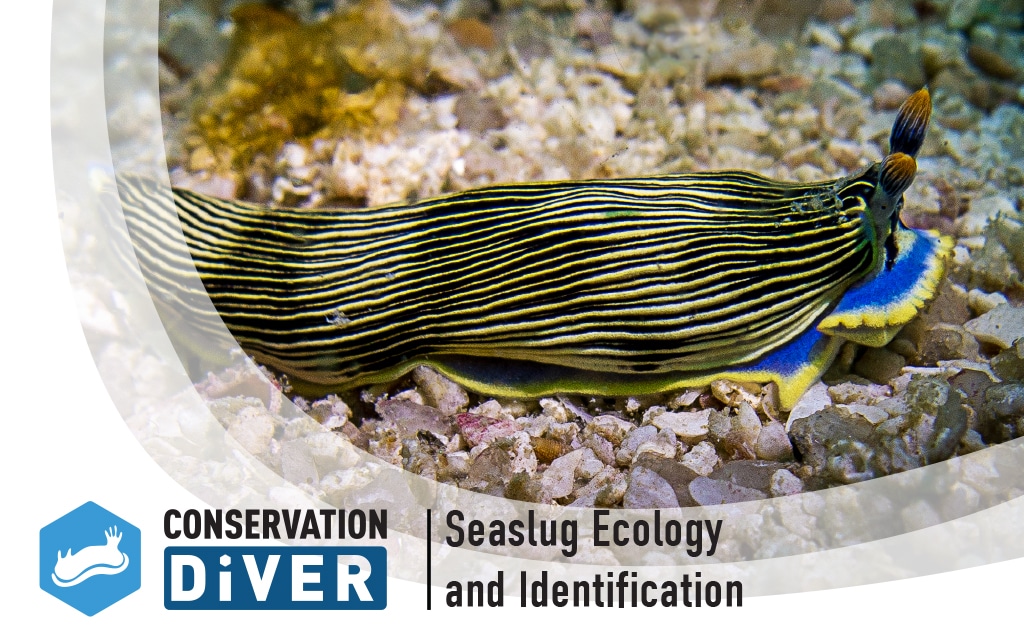
Training Centers
- Hawai'i - Ocean Alliance Project
- Indonesia – Blue Marlin Conservation
- Madagascar - MRCI
- Thailand – ATMEC
- Thailand – Black Turtle Conservation
- Thailand – NHRCP
Published papers and studies based on this course
Scientific papers
- A new species of coral-feeding nudibranch (Mollusca: Gastropoda) from the Gulf of Thailand. by Rahul Mehrotra, Spencer Arnold, Adam Wang, Suchana Chavanich, Bert W. Hoeksema & Manuel Caballer
- Selective consumption of sacoglossan sea slugs (Mollusca: Gastropoda) by scleractinian corals (Cnidaria: Anthozoa) by Rahul Mehrotra, Coline Monchanin, Chad M. Scott, Niphon Phongsuwan, Manuel Caballer Gutierrez, Suchana Chavanich, Bert W. Hoeksema
- The extraordinary genus Myja is not a tergipedid, but related to the Facelinidae s. str. with the addition of two new species from Japan (Mollusca, Nudibranchia) by Alexander Martynov, Rahul Mehrotra, Suchana Chavanich, Rie Nakano, Sho Kashio, Kennet Lundin, Bernard Picton and Tatiana Korshunova
- The formerly enigmatic Unidentiidae in the limelight again: a new species of the genus Unidentia from Thailand (Gastropoda: Nudibranchia) by Tatiana Korshunova, Rahul Mehrotra, Spencer Arnold, Kennet Lundin, Bernard Picton and Alexander Martynov
- On the genus Armina (Gastropoda: Heterobranchia: Nudibranchia) in Thailand by Rahul Mehrotra, Manuel Caballer Gutierrez and Suchana Chavanich
- Species inventory of sea slugs (Gastropoda: Heterobranchia) for Koh Tao, Thailand, with 25 first records for Thai waters by Rahul Mehrotra and Chad M. Scott
- Predation on a sacoglossan gastropod by a mushroom coral by Rahul Mehrotra, Chad M. Scott, Joel M. Rohrer and Bert W. Hoeksema
Articles
- A new species of coral-eating nudibranch
- Corals Have Evolved to Eat Sea Slugs
- The Koh Tao Team Makes a New Nudibranch Discovery
- A New species of Sea Slug – Found on Koh Tao
Related Resources
Shark Ecology & Population Studies
Shark Ecology & Population Studies
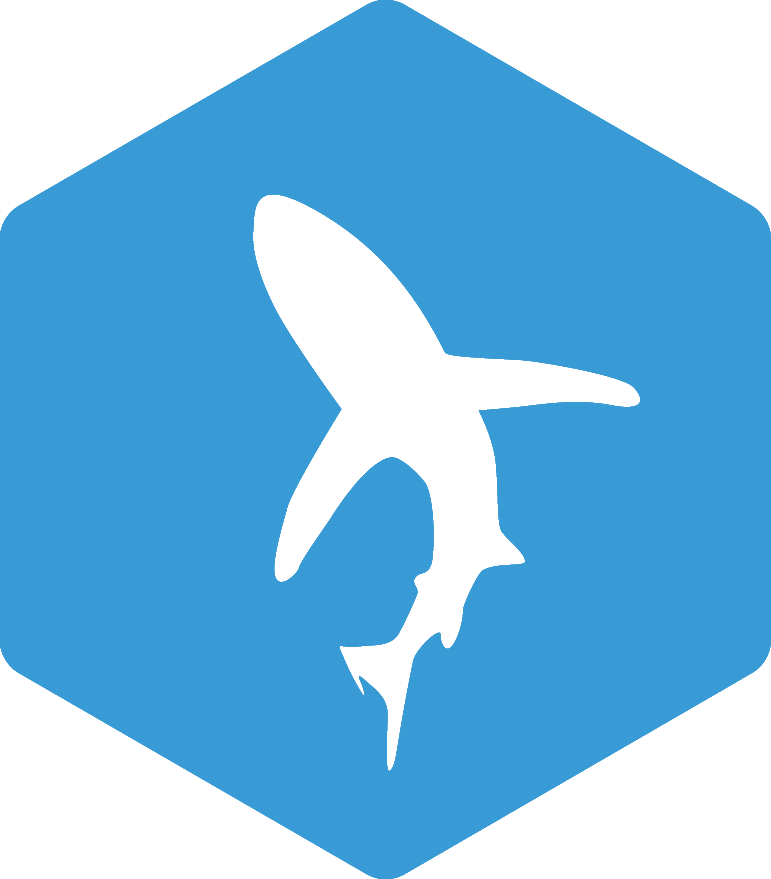
Sharks are one of the top predators of almost all marine environments; they have played a major role in driving the evolution of many of the other fishes and marine life. But today shark species around the globe are heavily threatened due to over-fishing. In this course you will learn more about the shark species of the world, as well as get the skills and practice monitoring shark populations and contributing to national and internal databases.


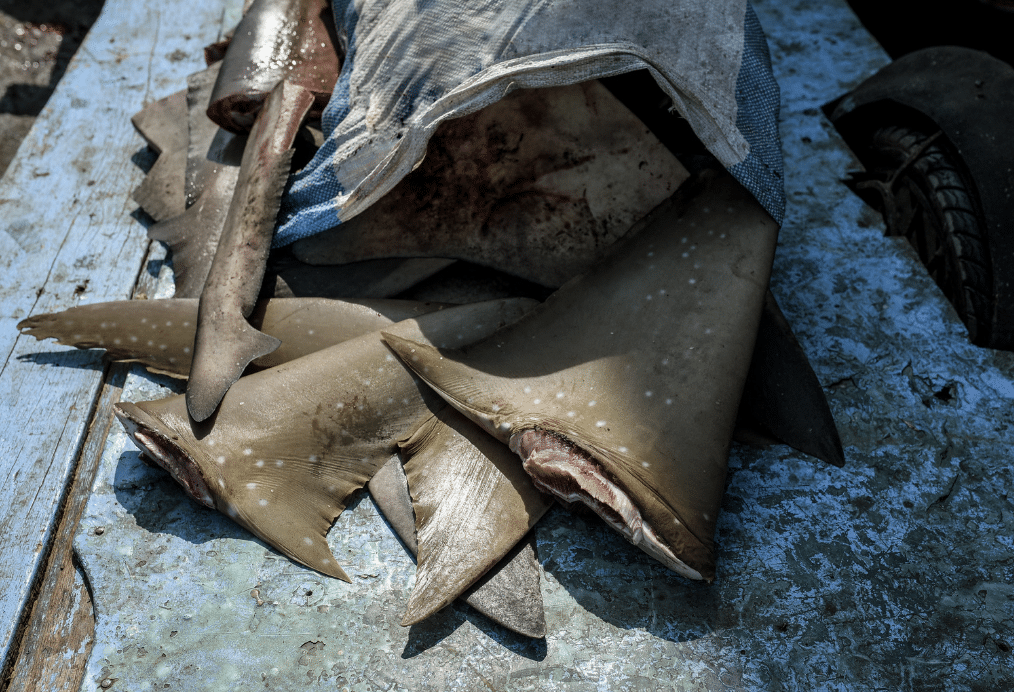
Prerequisites
- Be 12 years of age or older
- Be a competent swimmer if performing the course snorkelling
- Be certified as an Advanced diver under a leading diving organization (PADI, SSI, RAID, etc) or an Open Water diver who has satisfactorily completed a buoyancy appraisal with a professional diver
- Demonstrate proper diving ability at an advanced Level and be proficient in buoyancy and self-awareness
Standards
- Understand the importance of sharks in the marine ecosystem, global and local threats to shark populations, and shark identification.
- Learn how to survey for sharks and the various methods available to estimate abundance and diversity.
- Practice surveying for sharks while snorkeling or diving and record data on the sharks observed
- Know how to enter data into the Conservation Diver database and also partners such as SharkTrust.org and the eShark Project.
Requirements
- Attend 1 lecture on Shark Ecology and Population Studies
- Perform a dive OR snorkel to observe sharks
- Record data on shark observations
- Enter data into Conservation Diver and partner databases
Expected course time about 5 hours.
Certification Card
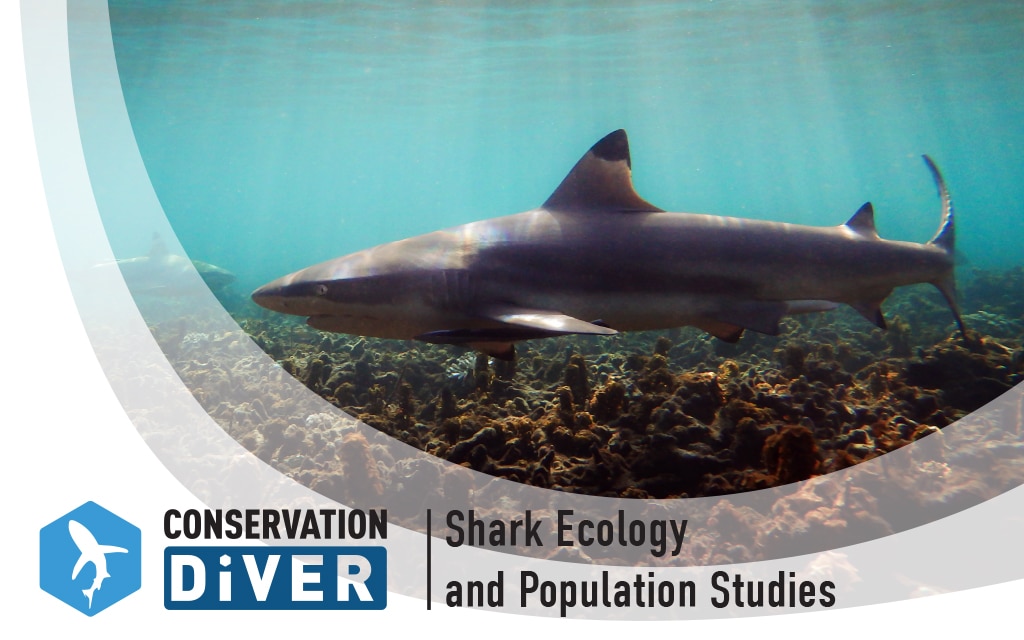
Training Centers
- Hawai'i - Ocean Alliance Project
- Indonesia – Blue Marlin Conservation
- Thailand – Black Turtle Conservation
- Thailand – NHRCP
Citizen Science Collaborators

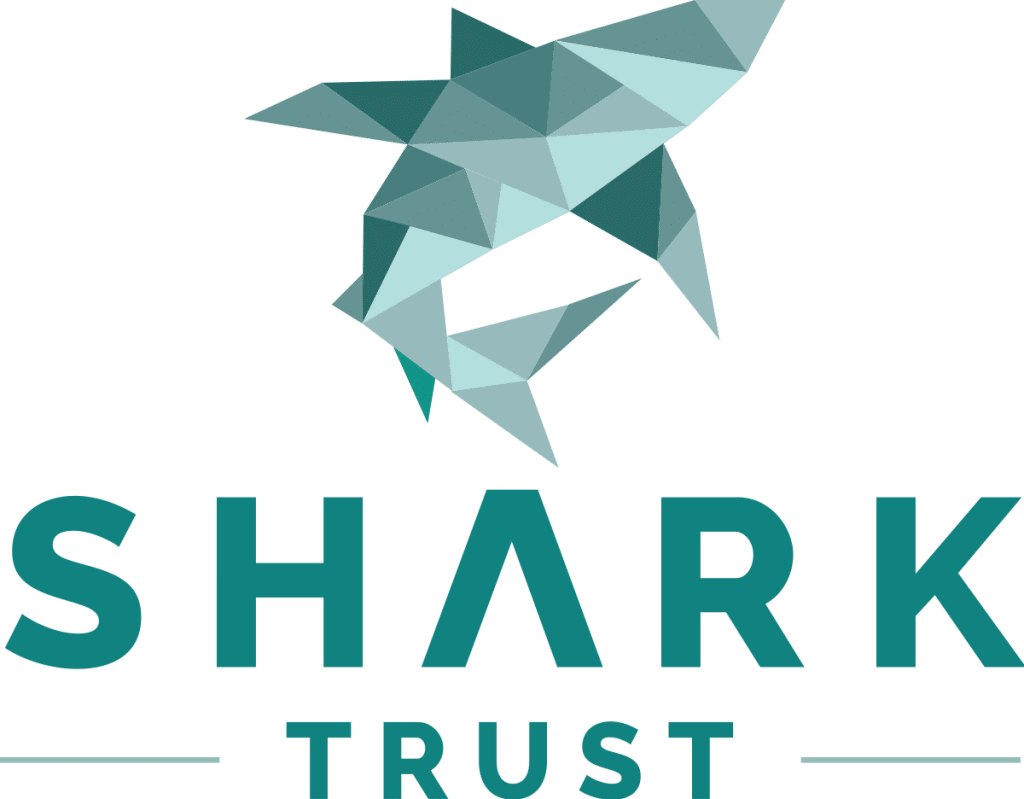
Ecological Monitoring Program
Ecological Monitoring Program

The Ecological Monitoring program is designed to give students an introduction to coral reef ecology and how to view the reef scientifically by assessing key biotic and abiotic reef components. The course teaches students how to use real world scientific sampling and reef survey techniques and certifies them to conduct their own surveys and report data back to the online database. Parameters assessed include fish and invertebrate abundance and biodiversity, substrate cover, coral taxonomy, coral diseases, coral bleaching, and more. This course is a prerequisite for many of the other courses offered by Conservation Diver
Prerequisites
- Be 12 years of age or older
- Be certified as an Advanced diver under a leading diving organization (PADI, SSI, RAID, etc) or an Open Water diver who has satisfactorily completed a buoyancy appraisal with a professional diver
- Demonstrate proper diving ability at an advanced Level and be proficient in buoyancy and self-awareness
Standards
- Understand more about coral reef ecology and threats to coral reefs
- Understand various survey techniques used by reef managers to monitor coral reef ecosystems
- Learn the techniques and diagnostic features for identifying coral reef invertebrates along a permanent transect line
- Learn the techniques and diagnostic features for identifying coral reef fishes and other vertebrates along a permanent transect line
- Learn how to assess substrate types and hard coral coverage/growth forms using the point-intercept technique
- Learn how to assess coral health and bleaching
- Perform EMP surveys in several different areas and input the data into the database
- Complete all 3 course exams
Requirements
- Attend all knowledge development presentations
- Complete the e-Learning or read and complete chapter reviews for chapters 1-8 in the EMP manual
- Enter records into database
- Perform all three surveys (invert., fish, and substrate) at least once
- Perform a ‘full EMP’ at least once
- Enter data onto data sheets or into the online database
Expected course time about 20 hours, minimum of 4 dives
Certification Card

Training Centers
- Hawai'i - Ocean Alliance Project
- Indonesia - Blue Marlin Conservation
- Madagascar - MRCI
- Mallorca - Albatros Diving
- Thailand - ATMEC
- Thailand - Black Turtle Conservation
- Thailand - NHRCP
Related Resources
Note: This course has an accompanying textbook what come in a printed and electronic version available for purchase - Ecological Monitoring Program Manual
Published Papers and reports related to this course
- Population dynamics of corallivores (Drupella and Acanthaster) on coral reefs of Koh Tao, a diving destination in the Gulf of Thailand by Chad M. Scott, Rahul Mehrotra, Margaux Y. Hein, Michelangelo S. Moerland, and Bert W. Hoeksema
- Rare zooxanthellate Nanipora octocoral (Helioporacea) in the Gulf of Thailand by Pau Urgell Plaza, Rahul Mehrotra, Chad M. Scott and James Davis Reimer
- Changes in hard coral abundance and composition on Koh Tao, Thailand, 2006-2014 by Chad M. Scott, Rahul Mehrotra, Madalena Cabral and Sirachai Arunrugstichai
- An update to the list of coral reef fishes from Koh Tao, Gulf of Thailand by Patrick Scaps and Chad M. Scott
